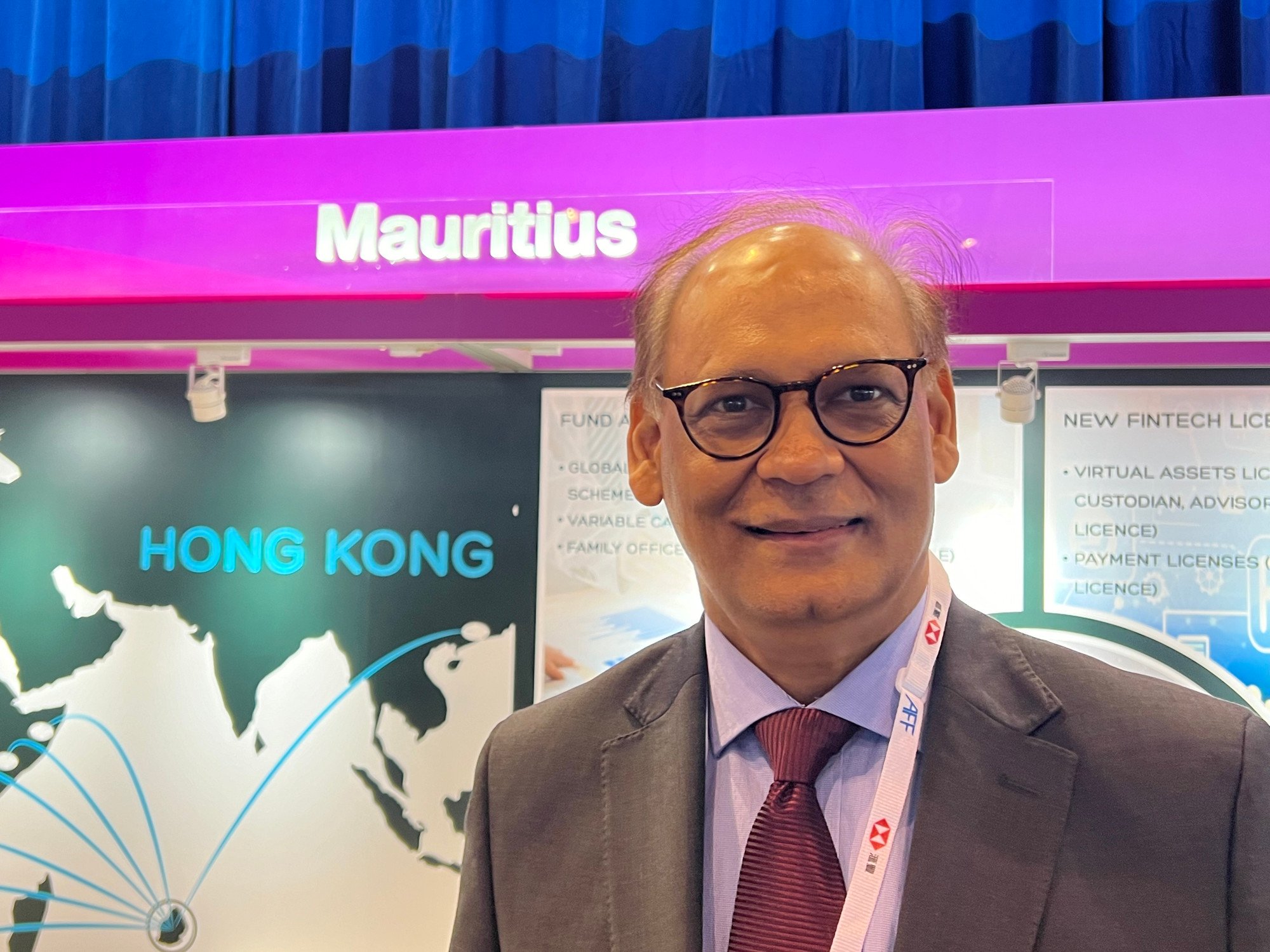
China investors eye Africa’s tiny island of Mauritius as it goes green and tries to sweeten trade deals
- Located in the Indian Ocean near Madagascar, Mauritius is looking to capitalise on its position as a gateway for Chinese to enter the African market, minister says
- Overseas energy investments by private Chinese companies fit into Beijing’s belt and road push, according to scholar
Chinese investors have begun shining a spotlight on a tiny island nation in East Africa known for a “special type of sugar”, but it’s not the vast plantations of Mauritius that have caught their eye.
Instead, they are sweet on cashing in on the country’s “ambitious target” of deriving at least 60 per cent of its energy from “green” sources by 2030, according to Mahen Kumar Seeruttun, minister of financial services and good governance for the island of 1.3 million people located around 1,000km (621 miles) east of Madagascar.
Solar-panel makers and other entrepreneurs in China’s renewable-energy sector have approached Mauritius about helping with the transition, Seeruttun said. China could also be more open to importing its unique sugar – and a popular sugar-based rum.
“We want to really encourage investors who are in that particular [green energy] space on how they can come invest in those areas,” Seeruttun told the Post at last week’s Asian Financial Forum in Hong Kong.
“Solar energy is one thing that we are promoting, and of course, we need to see – [for] promoters who are interested – how we can facilitate their entry into the market.”
With US making ‘game changing’ moves, China steps up African economic ties
The government has said that goal will help it honour an international commitment to help reduce greenhouse gas emissions.
Among Chinese investors, the minister said, solar is “one particular sector” where interest is clear.
Meanwhile, investors from China are also looking at Mauritius as a gateway to the African market, Seeruttun added.
Mauritius belongs to the African Union and is considered relatively wealthy and politically stable across the bloc’s 55 members. The nation is also a signatory to the 44-member African Continental Free Trade Area, a vehicle that reduces import tariffs.
The country ranked No 13 globally in the World Bank’s 2020 Ease of Doing Business survey.
In the renewable-energy sector, China has gained both a technological edge and a cost advantage
That presents a promising opportunity for investors, according to Xu Tianchen, senior China-based economist with The Economist Intelligence Unit.
“In the renewable-energy sector, China has gained both a technological edge and a cost advantage, which allow them to export products and technical expertise with little competition from other countries,” Xu said.
“Hydropower-station construction has become one important tool in cementing China’s relations with many developing nations, especially African ones.”
Across Asia, renewable energy has accounted for about 80 per cent of China’s power and utilities investments, the consultancy Dezan Shira & Associates said last year.
But Africa remains a relatively untapped resource in that regard, even though the continent has pulled in considerable Chinese investments as part of Beijing’s Belt and Road Initiative, a decade-long effort to link economies into a China-centred trading network and focuses heavily on developing infrastructure projects.
‘Not the optimal market’, but Africa a place where China firms ‘could survive’
Overseas energy investments by private Chinese companies fit into that belt and road push, said Naubahar Sharif, head of the public policy division at the Hong Kong University of Science and Technology.
And he added that the belt and road has shifted from Chinese state-backed megaprojects, such as ports, to smaller and more profitable projects, including green energy, he said.
For Mauritius, Sharif said, Chinese energy investment “is a means to curry favour with China – to get in their good book”, while it is relatively safe from a business perspective because private Chinese firms “are going to be careful with what they do”.

Meanwhile, Seeruttun said, Mauritius hopes to step up exports of a specialised cane sugar to China this year, in line with their three-year-old free-trade agreement.
China allows shipments of up to 50,000 tonnes per year of the sugar that is widely grown across the developing country, he said, and volumes are picking up.
Mauritius has found, too, that Chinese consumers have a taste for a sugar-based rum produced in the country, he added.
Sugarcane has grown in Mauritius since the 1600s and now covers a third of the country’s major island, according to a Fair Trade USA data sheet.
It says the tropical climate and volcanic soil offer “perfect conditions” for some 10,000 syndicated growers.
Fancy a safari? African countries on hunt for lion’s share of Chinese tourists
“We have always been a very large sugar producer, and over the years we have also developed a special type of sugar,” Seeruttun said. “We hope that we will be able to export that premium sugar, and we have a rum – a sugar-based rum – which we want to export into the China market.”
Chinese exporters already use the free-trade deal to ship home appliances and “you name it” to Mauritius, he added.
The Mauritian monetary authority also has a means of clearing payments in Chinese yuan, Seeruttun said.
“Given that we have an [free-trade agreement] with China, we believe that’s going to be very useful,” he said.

